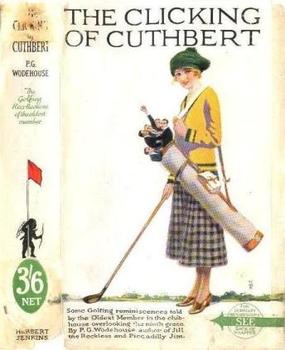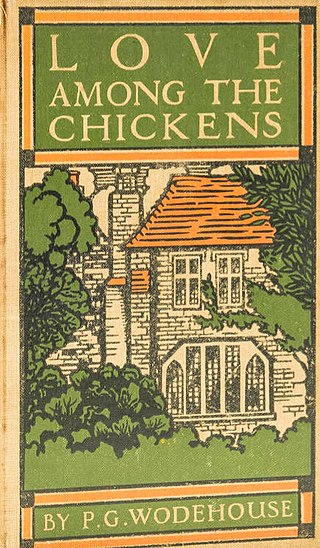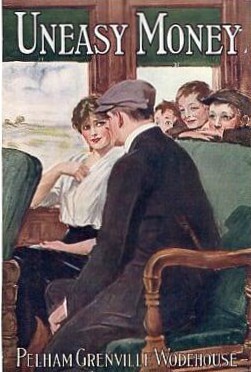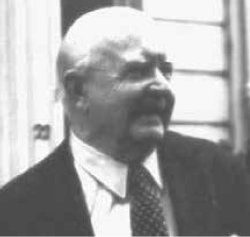
Alan Alexander Milne was an English writer best known for his books about the teddy bear Winnie-the-Pooh, as well as for children's poetry. Milne was primarily a playwright, and the success of his books on the character overshadowed much his previous work. Milne served in both World Wars, as a lieutenant in the Royal Warwickshire Regiment in the First World War and as a captain in the Home Guard in the Second World War.

Sir Pelham Grenville Wodehouse, was an English writer and one of the most widely read humorists of the 20th century. His creations include the feather-brained Bertie Wooster and his sagacious valet, Jeeves; the immaculate and loquacious Psmith; Lord Emsworth and the Blandings Castle set; the Oldest Member, with stories about golf; and Mr Mulliner, with tall tales on subjects ranging from bibulous bishops to megalomaniac movie moguls.

Dhalgren is a 1975 science fiction novel by American writer Samuel R. Delany. It features an extended trip to and through Bellona, a fictional city in the American Midwest cut off from the rest of the world by an unknown catastrophe. It is number 33 on the 20th Century's Greatest Hits: 100 English-Language Books of Fiction list.

Richard Horatio Edgar Wallace was a British writer of sensational detective, gangster, adventure and sci-fi novels, plays and stories.

Guy Reginald Bolton was an Anglo-American playwright and writer of musical comedies. Born in England and educated in France and the US, he trained as an architect but turned to writing. Bolton preferred working in collaboration with others, principally the English writers P. G. Wodehouse and Fred Thompson, with whom he wrote 21 and 14 shows respectively, and the American playwright George Middleton, with whom he wrote ten shows. Among his other collaborators in Britain were George Grossmith Jr., Ian Hay and Weston and Lee. In the US, he worked with George and Ira Gershwin, Kalmar and Ruby and Oscar Hammerstein II.

Lady Florence Craye is a recurring fictional character who appears in P. G. Wodehouse's comedic Jeeves stories and novels. An intellectual and imperious young woman, she is an author who gets engaged at different times to various characters, each failing to perform a difficult task for her or to meet her high standards. She is one of the women to whom the hapless Bertie Wooster repeatedly finds himself reluctantly engaged, a situation from which he must be rescued by Jeeves.
Rosie M. Banks is a recurring fictional character in the Jeeves and Drones Club stories of British author P. G. Wodehouse, being a romance novelist and the wife of Bingo Little.

The Inimitable Jeeves by P. G. Wodehouse was the first of the Jeeves novels, although not originally conceived as a single narrative, being assembled from a number of short stories featuring the same characters. The book was first published in the United Kingdom by Herbert Jenkins, London, on 17 May 1923 and in the United States by George H. Doran, New York, on 28 September 1923, under the title Jeeves.

The Clicking of Cuthbert is a collection of ten short stories by P. G. Wodehouse, all with a golfing theme. It was first published in the United Kingdom on 3 February 1922 by Herbert Jenkins Ltd of London. It was later published in the United States by George H. Doran of New York on 28 May 1924 under the title Golf Without Tears. The short stories were originally published in magazines between 1919 and 1922.

Meet Mr. Mulliner is a collection of short stories by P. G. Wodehouse. First published in the United Kingdom on 27 September 1927 by Herbert Jenkins, and in the United States on 2 March 1928 by Doubleday, Doran. The short stories were originally published in magazines, mainly The Strand Magazine in the UK and Liberty in the US.

Love Among the Chickens is a novel by P. G. Wodehouse, first published as a book in the United Kingdom in June 1906 by George Newnes, London, and in the United States by Circle Publishing, New York, on 11 May 1909. It had already appeared there as a serial in Circle magazine between September 1908 and March 1909. The English edition was dedicated "to Sir Bargrave and Lady Deane"; the Rt Hon Sir Henry Bargrave Deane QC was a High Court judge and a cousin of Wodehouse's mother.

Uneasy Money is a novel by P. G. Wodehouse, first published in the United States on 17 March 1916 by D. Appleton & Company, New York, and in the United Kingdom on 4 October 1917 by Methuen & Co., London. The story had earlier been serialised in the U.S in the Saturday Evening Post from December 1915, and in the UK in the Strand Magazine starting December 1916.

The Coming of Bill is a novel by P. G. Wodehouse. It was published as Their Mutual Child in the United States on 5 August 1919 by Boni & Liveright, New York, and as The Coming of Bill in the United Kingdom on 1 July 1920 by Herbert Jenkins Ltd, London. The story first appeared in Munsey's Magazine (US) in May 1914 under the title The White Hope.

Indiscretions of Archie is a novel by P. G. Wodehouse, first published in the United Kingdom on 14 February 1921 by Herbert Jenkins, London, and in the United States on 15 July 1921 by George H. Doran, New York.

Richard Alexander Usborne was a journalist, advertising executive, schoolmaster and author. After the publication of his book Wodehouse at Work in 1961 he became regarded as the leading authority on the works of P. G. Wodehouse. He published or contributed to nine more books on the subject. He adapted eight Wodehouse novels and several other of the author's works for broadcast on BBC radio between 1979 and 1996.
"Honeysuckle Cottage" is a short story by the British author P. G. Wodehouse. The story was first published in the 24 January 1925 issue of the Saturday Evening Post in the United States, and in the February 1925 issue of the Strand Magazine in the United Kingdom.

Beatrice Ethel Grimshaw was an Irish writer and traveller. Beginning in 1903, she worked as a travel writer for the Daily Graphic and The Times, leading her to move to the Territory of Papua, where she served as the informal publicist of Lieutenant Governor Hubert Murray. Prior to her travels, she was the editor of the Social Review, publishing many of her own works under a pen name, and she had worked as a sports journalist for the Irish Cyclist. Over the course of her life, she wrote several novels, travel books, and short stories.

The Rocks of Valpre is a 1935 British crime film directed by Henry Edwards and starring John Garrick, Winifred Shotter and Leslie Perrins. The film was made at Twickenham Studios. It was based on the 1913 novel of the same name by Ethel M. Dell, and was released in the U.S. as High Treason. The film is set in the mid-nineteenth century with plot elements resembling the later Dreyfus Case.

The Rocks of Valpré is a 1913 novel by the British writer Ethel M. Dell. First published in the United States in 1913. It is set in the mid-nineteenth century when an officer wrongly imprisoned on Devil's Island escapes and heads to Europe to rescue the love of his life from the villain.

Ruby Mildred Ayres was a British romance novelist, "one of the most popular and prolific romantic novelists of the twentieth century".

















